Table of Contents (click to expand)
Water is not electrically conductive. However, the water that usually comes in contact with electrical circuits is rarely pure water, i.e., it’s usually filled with impurities. These impurities are what make water electrically conductive, and thus a hazard when brought in direct contact with electrical circuits.
All of us have had certain experiences that have taught us one thing or another about how the world works. There are many, in fact, countless examples of such experiences, but for now, I’ll take the one that involves electricity.
I have been zapped more than once by low-intensity (basically harmless) electric shocks while trying to plug in a cable (that was not completely dry) into an outlet. The lesson that I learnt after experiencing a few of these small, yet surprising electric shocks is that water and electricity should not be ‘brought together’, especially if you enjoy staying alive.
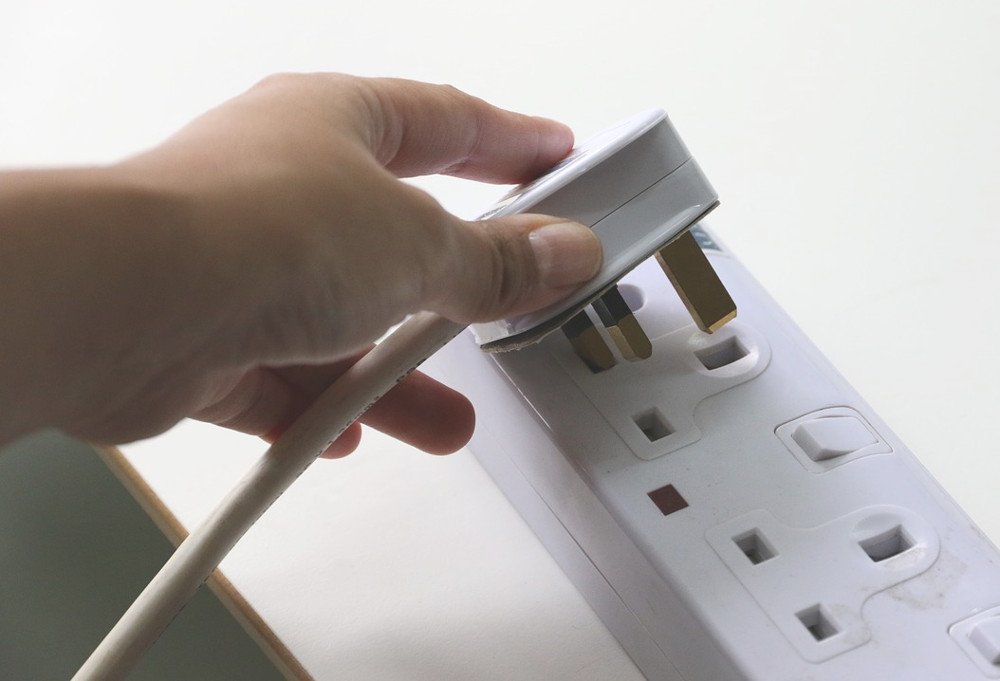
So, it can definitely be said that water has a tendency to make electricity behave ‘abnormally’, i.e., in a way that’s not particularly safe for us. However, if that’s the case, why don’t power lines and transmission towers short-circuit during rainstorms when they’re practically drenched in water?
Before we get to that, we should try to understand the basics.
What Is A Short Circuit?
A short circuit is a low-resistance connection between two conductors supplying electrical power to any circuit; in other words, a short circuit causes current to flow through an unintended path, which has no or very little electrical resistance. In simple terms, a short circuit is an unintended connection between two parts of a circuit that is not good for your circuit, and by extension, is not good for you either!
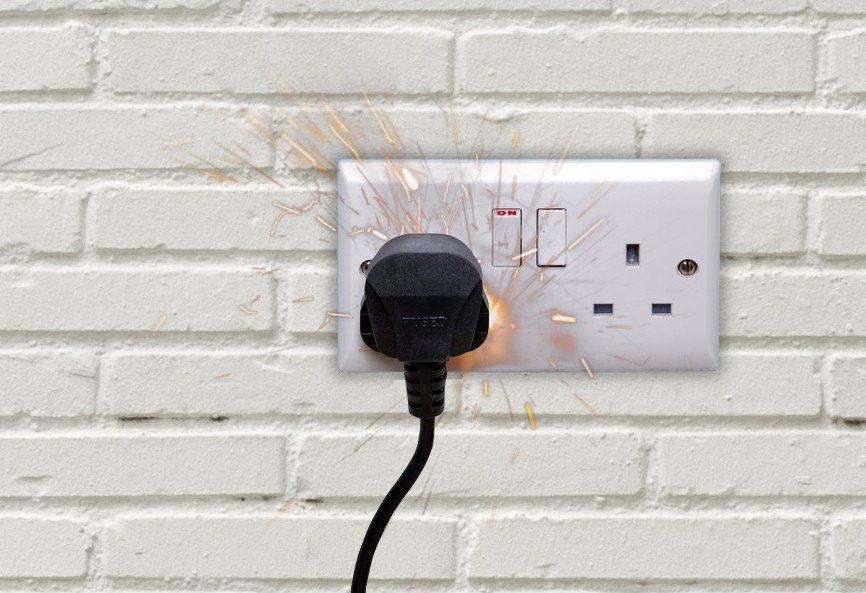
Also Read: How Do Electrons Determine The Path Of Least Resistance?
Why Does Water Cause Short Circuits?
Most liquids that come in contact with electrical circuits are water-based, so understanding why water and electricity are not a great combination is important.
You may recall from your high school science class that water is conductive. The truth is, pure water is not actually that conductive. In fact, it’s not conductive at all!
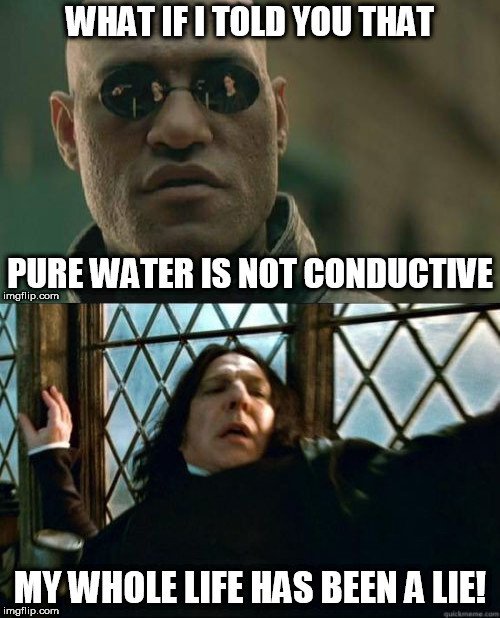
Yes, that’s true. Pure water is not electrically conductive.
However, the water that usually comes in contact with electrical circuits is rarely pure water, i.e., it’s usually filled with impurities. These impurities are what make water electrically conductive, and thus a hazard when brought in direct contact with electrical circuits.
Since water is conductive, it could potentially make (electrical) connections in places (within the circuit) where you don’t want them. This can then lead to the flow of current through an unintended path, and boom! You have a short circuit!
Also Read: Does Water Really Conduct Electricity?
How Power Transmission Towers Protect Against Short Circuits
There are a number of reasons that ensure that power transmission towers don’t normally short circuit.
First, as mentioned earlier, pure water is not all that conductive, and water falling directly from the sky is pretty close to pure (as far as its conductivity is concerned). You need ions in water for the latter to conduct electricity, which rainwater generally lacks, so rainwater causing short circuits is a rare occurrence to begin with.
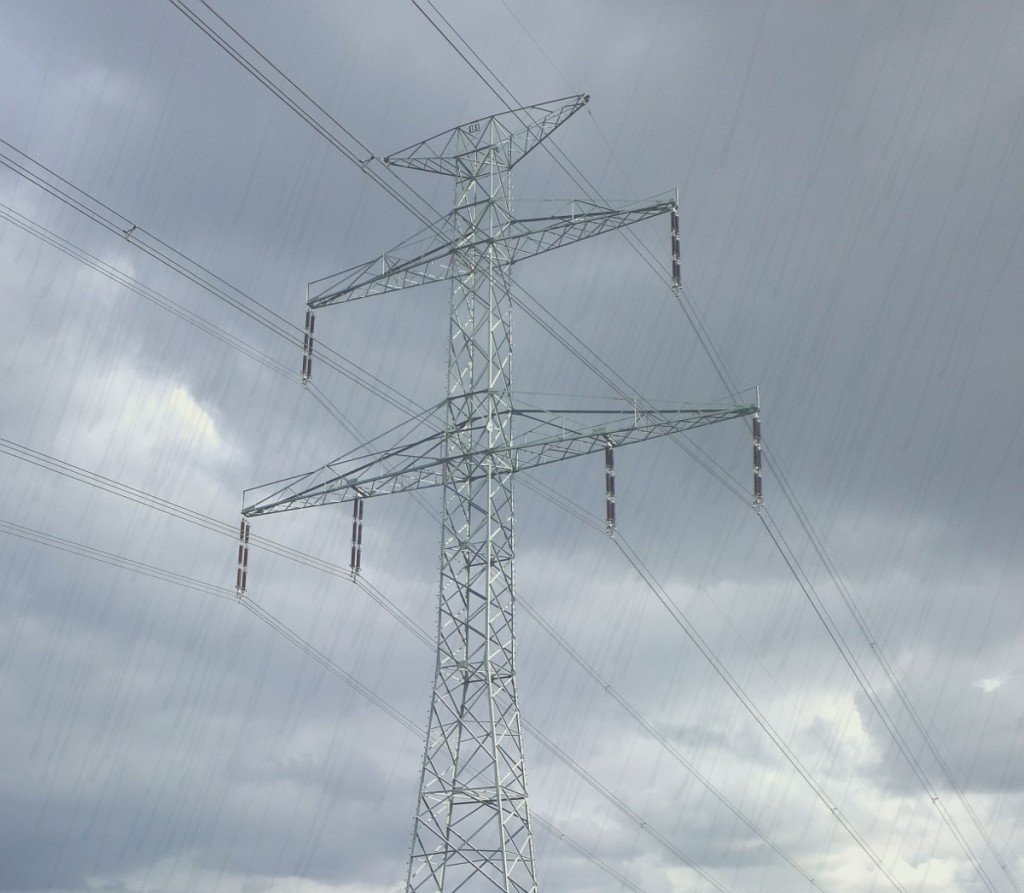
Moreover, electrical insulators are put in place to keep circuits separated, i.e., to prevent them from coming in contact. These electrical insulators are materials that allow no or very little electrical current to flow through them when they are brought under the influence of an electric field. The insulators they use on power transmission towers are made of ceramic, which is a poor conductor of electricity. In other high-power systems, they also use other insulation materials, such as glass wire holders, vacuum, gas etc.
These insulators don’t just prevent short circuits, but also offer another advantage. They have multiple bell-shaped grooves on them, which prevent rainwater from reaching the inside surfaces, and therefore can prevent the formation of a complete coat of water (a complete coat of water could potentially provide an unintended path in a circuit).
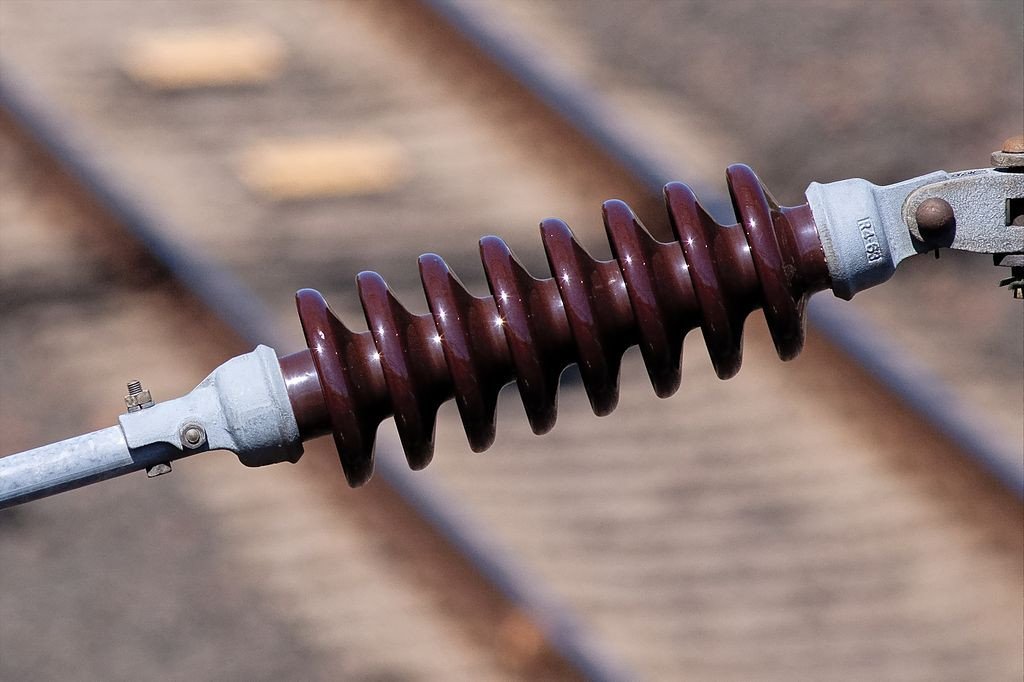
Another thing that power companies do is space the power lines far apart, so that rainwater cannot cause an arc between phases. Lastly, power companies run regular maintenance activities on these towers: they clean those electrical insulators by spraying them with deionized water, which ensures that they remain electrically non-conductive.
These are the main reasons why you don’t see power transmissions towers failing (thank god for that!) due to short circuits every time it rains.
Also Read: How Does Electrical Power Transmission Work?
How well do you understand the article above!

